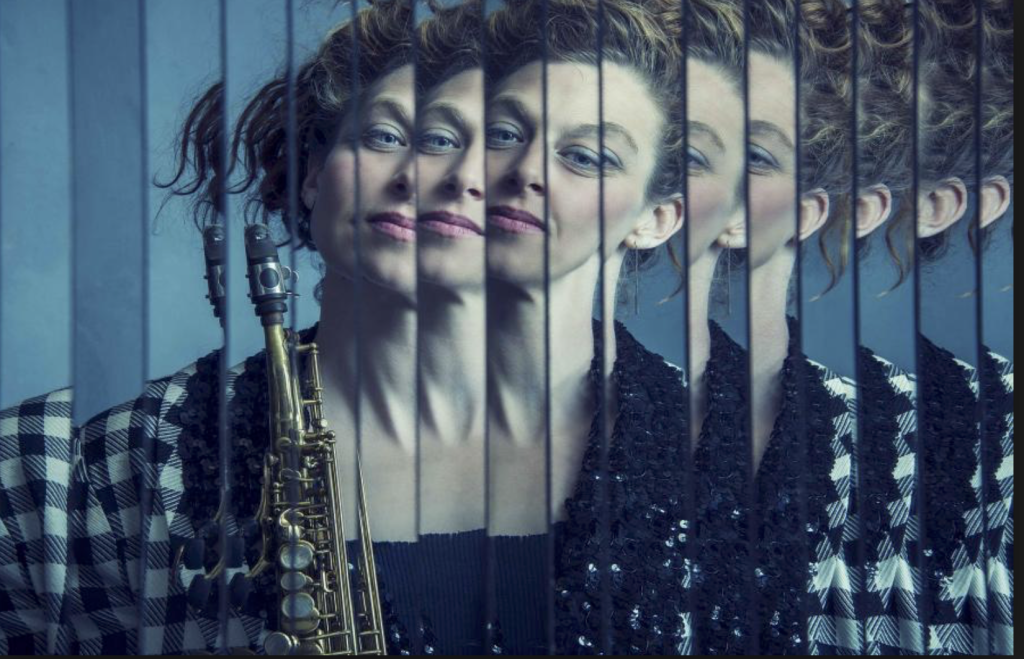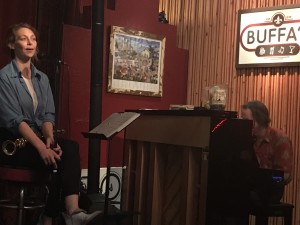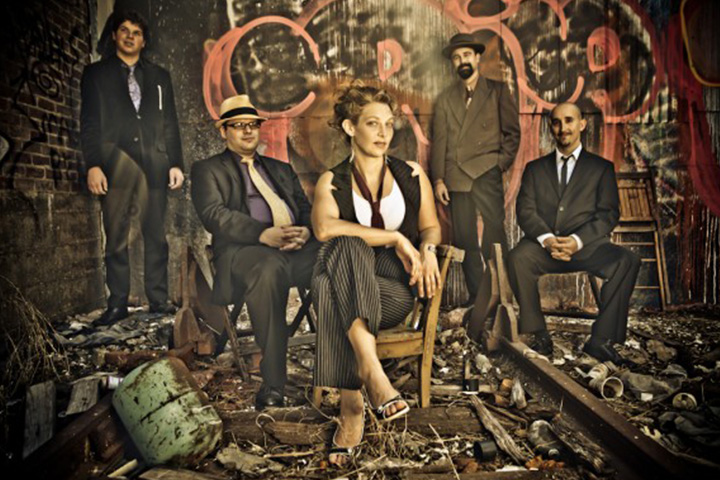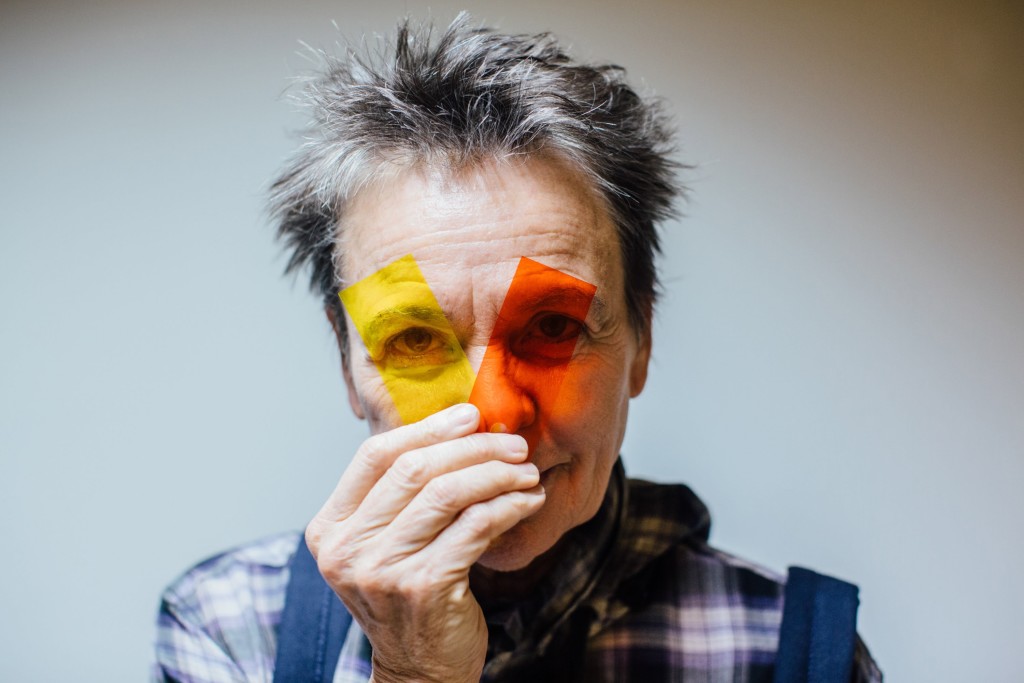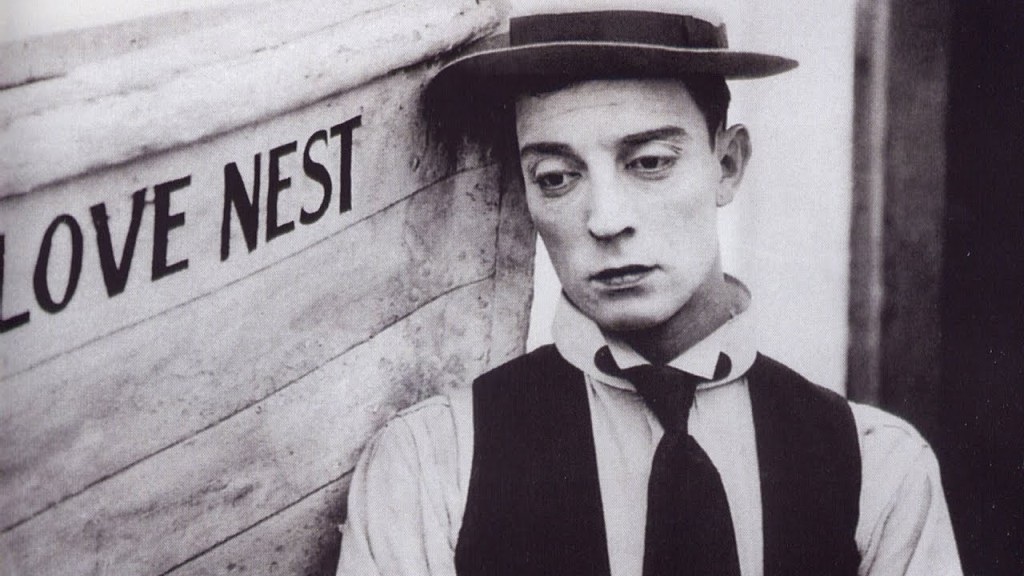Aurora Nealand
“The Preservation of Fire”
Before the composer and multi-instrumentalist Aurora Nealand takes a job, she’ll ask, “Did you want The Monocle or did you want The Royal Roses?”
Nealand has led those musical entities for years, and — like her — they lean in seemingly opposite directions. The Monocle invites listeners into a kind of magical, sonic storytelling that marries original poetry and traditional instruments with a patina of high technology. The Royal Roses plunge head-first into rousing experimental romps through traditional jazz. But Nealand also could ask whether a would-be client might enjoy The Jessicas — her punk duo with cellist Helen Gillet — or the cabaret show she and pianist Tom McDermott play together, sometimes inspired by old Buster Keaton classics.
Then again, Nealand might offer to summon the leader of a rowdy band of hooligans who play spit-on-the-floor-and-fart type pop music with astonishing technical prowess, a woman who looks and sounds exactly like she does. That artist, like Nealand, also plays soprano saxophone and a variety of other instruments and she’s reachable at Nealand’s exact same telephone number. But she answers to the name “Rory Danger” of “Rory Danger and The Danger Dangers” fame.
“It’s a confusing branding, right?” Nealand told Gwen recently. But “there’s no one project that can encapsulate any human, or performer.”
KindHumanKind
In March of 2019, Nealand collaborated with Goat in the Road Theatre Company on a major project — a staged concert version of her solo record KindHumanKind for the New Orleans Contemporary Arts Center.
Repeat performances scheduled for April, 2020 at the CAC were cancelled. Aurora Nealand, like all the musicians featured on Music Inside Out, has had her artistry and her livelihood curtailed by the coronavirus.
Musical Shape-Shifter
Aurora Nealand’s ability to bring whatever tools are needed to a song or musical project seems to have begun in a childhood spent on the California coast and in the Colorado Rocky Mountains. That’s where she taught herself to play piano and a range of other instruments. Her parents — “hippies” she calls them — encouraged curiosity and musical appreciation but discouraged rule-making. That meant Nealand was free to do whatever she liked as a musician — and she came to like everything.
From there, Nealand moved eastward — first to the Oberlin Conservatory of Music in Ohio, then New York, then Paris. She settled in New Orleans in 2004 and seven years later, made a head-turning debut at Preservation Hall with her band The Royal Roses. Their concert, featuring the music of Sidney Bechet, included dancers and top notch musicianship, making the evening a one-of-a-kind foray into performance art. Or perhaps, it was just another night in the New Orleans Bechet knew. In New Orleans, he wrote, “the music was as natural as the air.”
On the live recording that followed, Nealand added her own coda, “I wanted to convey the spirit his music inspires in each of us today — a vitality, a sense of exploration, a fierceness of individual personality, a need to dance or clap or shout.”
Preservation of Fire
Nealand is working on a project that will include the voices of veteran traditional jazz musicians. There’s still a lot to learn, she says, but that happens on and off the bandstand. “If you want tradition to really be a living tradition you have to let artists live within it.” On yet another Royal Roses album, titled, Comeback Children, Nealand includes a quote from composer Gustav Mahler that burnishes her philosophy to a brilliant shine:
“Tradition is not the worship of ashes, but the preservation of fire.”
Connect with Aurora Nealand – Website |Soundcloud | Facebook | Instagram
Playlist
Every week, we provide a playlist of the music on the program. Please support your local musicians and record stores.
The Avant-Gardists
In the 1990s, while still an undergrad at Oberlin, Nealand left Ohio for eight months to live in New York City and experience the work of multi-media sound and visual artists — “Laurie Anderson, Brian Eno, Terry Riley, Philip Glass, Robert Wilson,” she recalls. “Like these larger scale, blending the lines between sound composition, installation, performance art and experimental pop music, I would say. Frank Zappa.” Since then, she has embraced avant-garde concepts in her solo work and in collaboration with a variety of artists. Some of her projects, including The Monocle, an operetta called “Female Hysteria” and her work with the Instigation Festival and Found Sound Nation reflects her bent for exploration in music and performance.
Arcade Lights
“Arcade Lights” is a song Nealand wrote for The Monocle album KindHumanKind with many of these artists in mind. In a way, the song releases the hold they and others have had on her work. “There are people you can really respect and look up to, but they’re not gods,” she said. “They are them … and those people weren’t asking to be gods.”
Here’s a video for “Whistleblower,” another song from KindHumanKind.
Buster Keaton
Aurora Nealand grew up playing piano, finding her way through Beethoven’s Pathetique Sonata and Rachmaninoff’s Piano Concerto in C Minor, and almost anything by Chopin. But she also grew up improvising, which is a skill that dovetails nicely with physical comedy. Nealand began playing musical scores to the silent films of comedy master Buster Keaton years ago, before she knew that pianist Tom McDermott was doing the exact same thing across town. Well, bippety, boppety, boo! They now perform together.
“They’re slightly absurdist,” Nealand says of Keaton’s films. “There is a level to it that’s kind of avant-garde vaudeville or something. There is a level to it that you are just like “Whoa, Whoa!” that’s genius and very unexpected.” The vaudeville tinge is crucial, she says, “Because of that, there’s such musicality.”
Nealand’s picks?
Cops (1922)
The Playhouse (1921)
One Week (1920)

